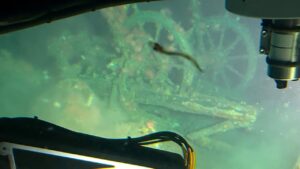“I think of myself as this atom on an ice cube in the middle of nowhere.” — Henry Worsley
If you have an interest in contemporary polar travel, you likely know the name Henry Worsley. In January, 2016 the world’s press announced that former British Army soldier Worsley had perished from a bacterial infection only a day or so after being rescued from the “Great White Queen” — Antarctica. Like his hero, Ernest Shackleton, Worlsey had shot his bolt. He called for evacuation just 50km shy of becoming the first person to traverse Antarctica solo, unsupported and unassisted.
American nonfiction writer David Grann has repackaged his popular New Yorker article on Worsley into book form, along with previously unseen photographs from Worsley’s final journey. At 142 pages, it’s short enough to devour in one long session. The annals of exploration contain many extraordinary epics, but what really captures our imaginations is the chance to peek inside the psyche of our favourite protagonist. As I turned the final pages of this book, I fought back the lump in my throat as I imagined the sufferings of Worsley’s wife and children, along with a sense of sadness that I would never get the chance to meet Worsley or hear him speak. The ability to evoke such emotion from a reader reflects how thoughtfully Grann has managed to craft such a punchy precis of Worsley’s life, his obsession with Shackleton and of course, his polar journeys.

Crossing the glittering Beardsmore Glacier with William Gow and Henry Adams. Worsley, Gow and Adams were all descendants of Shackleton expedition members. Photo: William Gow
The book opens with a short snippet from Worsley’s final journey before shifting to the backstory of his upbringing and military years. Worsley had a stellar career. He reached Captain in the regular Army, then successfully passed selection to the Special Air Service, the world’s first dedicated special forces unit. He had the rare distinction of serving two tours as a junior officer. In later years, Worsley worked as a special operations officer at the Pentagon on behalf of the UN and British Army.
Grann also managed to dig up other facets of the military man, such as his penchant for flamboyant clothing, needlework and art. Noting that a close colleague once said of Worsley that his “gentle, artistic side could mask a very significant spine of steel,” Grann poses difficult questions: Was this steely spine his undoing? Could he have pushed too far?

A bereted Worsley during a military visit to the Falkland Islands. Photo: Joanna Worsley
The narrative of Worsley’s three major Antarctic expeditions cross-referenced with insights from friends, family, fellow expeditioners and diary entries transports you right into the belly of Worsley’s White Darkness. The main criticism I have of this book is that I wish it were much longer. The repackaged essay is a fine keepsake, but I’m left with a nagging sense that a weightier tome would offer so much more. However, in a world where formulaic and dull run-throughs of the n-th expedition to do such-and-such dominate the polar bookshelves, Grann’s ability and eye for detail have crafted a fine and moving tale.

A message Worsley scrawled in the snow on his second expedition down South. Photo: Joanna Worsley

Worsley’s final flight. He hit the rescue button just 50km short of the finish line. Photo: Joanna Worsley.

Max, Joanna and Alicia Worsley visited South Georgia Island in 2017 to pay their respects to their lost father and husband. Photo: Roger Pimenta
 The White Darkness by David Grann was published in November by Penguin Random House and Simon and Schuster.
The White Darkness by David Grann was published in November by Penguin Random House and Simon and Schuster.






